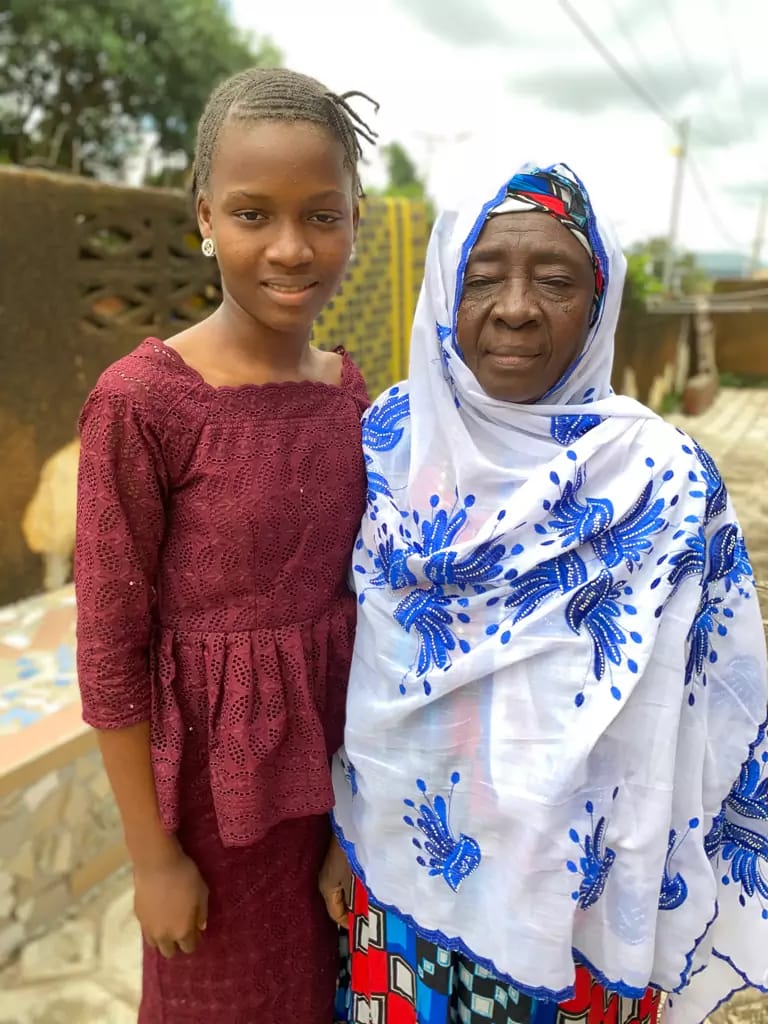Girl, 12, split from rest of family for years due to Home Office delay
After months of chasing the department, Mohamed Fadiga told his daughter’s application ‘cannot be located’

A 12-year-old girl has been split from the rest of her family for years as the coronavirus pandemic, and now a lengthy Home Office delay, is preventing her from joining them in the UK.
Amina Fadiga is living in Guinea, West Africa, with her elderly grandmother, who is increasingly unwell and incapable of looking after her, as her parents wait desperately for a decision on a visa for her to join them and their other three children at their home in Birmingham.
They first applied for an EU Family Permit in February 2020 and the visa was granted within two weeks, but Covid travel restrictions meant that Amina couldn’t travel before the visa expired.
Her father, Mohamed Fadiga, who lives with his wife, Aicha Cisse, and their other children – aged five, one and four months – requested a concession from the Home Office to enable her to travel after the expiry date, but this was refused.
He made a fresh application for Amina in February 2021, but 17 months later there has been no decision.
Earlier this month, the Home Office informed Mr Fadiga, after he made multiple requests for an update, that the application “cannot be located” and that Amina would need to “submit a fresh application”.
The application number and details on the submission of confirmation in February 2021 and those in the recent Home Office email – both seen by The Independent – are identical, so it is not clear why the department is not able to trace the application 17 months on.
Making a new application will add months to the already lengthy delay.
In the meantime, Amina’s grandmother, 77, is becoming increasingly frail, to the point that she requires a carer to visit the house every day, and Mr Fadiga, 38, is worried for his daughter’s welfare.
“How is she going to stay there if my mum can’t look after her? My biggest fear is there won’t be anyone to care for her. We can look after her here – she needs to be here,” he said.
“She wants to be with her siblings, to be with her parents. I have to call all the time to know what she’s doing, to check that she is okay.
“Now the Home Office is telling us to apply for the third time. I’m fed up.”
Mr Fadiga moved to the UK in 2012 and first worked as a cleaner and then as a chef in Nando’s, where he still works. Ms Cisse, 42, joined him a year later and works as a housekeeper in a hotel. They left Amina with her grandmother, who was happy to care for her, so that they could both work.
In 2019 the grandmother’s health started to deteriorate. They decided that Amina should join them and started the application process in early 2020, but are still waiting with no indication as to how long it will take.
“I’m sad, I’m confused, I can’t sleep. The Home Office isn’t giving any answers. What is difficult about this case? She got the visa quickly the first time,” said Mr Fadiga.
“They told me Ukrainian cases are the priority. Our case was put in before the Ukrainian crisis. We are humans too.”

The case comes amid mounting concerns about growing delays in the visa processing and decision-making system, with the standard timeframe for many applications, including business, tourist, student and family reunion visas, having doubled in the past year.
The Home Office has said that the current processing delays are the result of the war in Ukraine, saying it has led to the department experiencing “unprecedented demand” and that it is currently prioritising applications from Ukrainian refugees.
The service standard for family visas – which include family reunion applications for minors – was increased from 12 weeks to 24 weeks in May 2020.
Yasar Razaq, the family’s immigration lawyer, said: “An application which should have taken up to 21 days has ended up taking 520 days and counting. This has deprived my client of his family rights.
“We urge the Home Office to consider the devastating effects delays have upon family life and decide fast.”
A Home Office spokesperson said: “Each case is considered as quickly as possible and on its individual merits but processing times can vary depending on the volume and complexity of applications.
“We are in touch with the applicant and have provided advice on next steps.”
Join our commenting forum
Join thought-provoking conversations, follow other Independent readers and see their replies
Comments


Bookmark popover
Removed from bookmarks